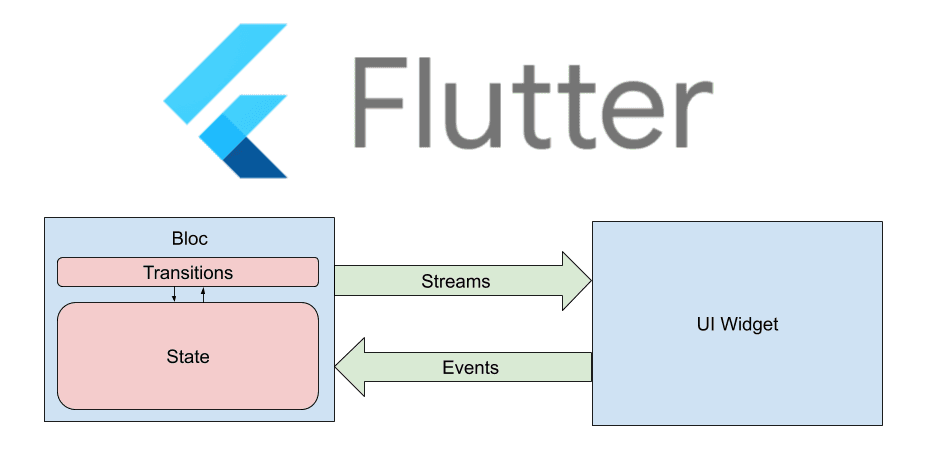Benefits of Using Low-Code Platforms for Rapid App Development


Introduction
Introduction
Introduction
Introduction
In today's fast-paced digital world, the demand for rapid app development has never been higher. Businesses need to innovate quickly to stay competitive, and traditional software development methods often can't keep up. This is where low-code platforms come into play. These platforms allow for faster development cycles by enabling users to create applications with minimal hand-coding, using visual development interfaces and pre-built components.
Importance
The increasing demand for rapid development solutions highlights the need for tools that can streamline the development process. Low-code platforms are revolutionizing the way businesses approach app development, making it accessible to a broader range of users and reducing the dependency on specialized developers.
In today's fast-paced digital world, the demand for rapid app development has never been higher. Businesses need to innovate quickly to stay competitive, and traditional software development methods often can't keep up. This is where low-code platforms come into play. These platforms allow for faster development cycles by enabling users to create applications with minimal hand-coding, using visual development interfaces and pre-built components.
Importance
The increasing demand for rapid development solutions highlights the need for tools that can streamline the development process. Low-code platforms are revolutionizing the way businesses approach app development, making it accessible to a broader range of users and reducing the dependency on specialized developers.
In today's fast-paced digital world, the demand for rapid app development has never been higher. Businesses need to innovate quickly to stay competitive, and traditional software development methods often can't keep up. This is where low-code platforms come into play. These platforms allow for faster development cycles by enabling users to create applications with minimal hand-coding, using visual development interfaces and pre-built components.
Importance
The increasing demand for rapid development solutions highlights the need for tools that can streamline the development process. Low-code platforms are revolutionizing the way businesses approach app development, making it accessible to a broader range of users and reducing the dependency on specialized developers.
In today's fast-paced digital world, the demand for rapid app development has never been higher. Businesses need to innovate quickly to stay competitive, and traditional software development methods often can't keep up. This is where low-code platforms come into play. These platforms allow for faster development cycles by enabling users to create applications with minimal hand-coding, using visual development interfaces and pre-built components.
Importance
The increasing demand for rapid development solutions highlights the need for tools that can streamline the development process. Low-code platforms are revolutionizing the way businesses approach app development, making it accessible to a broader range of users and reducing the dependency on specialized developers.
Low-Code Platforms
Low-Code Platforms
Low-Code Platforms
Low-Code Platforms
What Are Low-Code Platforms?

Definition: Low-code platforms are tools designed to simplify the app development process by allowing users to create applications through graphical user interfaces and configurations rather than traditional hand-coded programming. This approach significantly reduces the amount of code that developers need to write, speeding up the development process.
Key Features:
Visual Development Interfaces: Drag-and-drop components and visual workflows enable users to build applications without deep coding knowledge.
Pre-Built Templates and Modules: Ready-to-use templates and modules expedite the creation of standard functionalities.
Integration Capabilities: Seamless integration with various third-party services and APIs.
Advantages for Rapid App Development
Speed and Efficiency: Low-code platforms rapid the process to develop applications. By utilizing visual development tools and pre-built components, developers can create and deploy applications much faster than with traditional coding methods.
Cost Savings: Development costs are lower because low-code platforms reduce the need for large teams of specialized developers. The streamlined development process also cuts down on the time spent on projects, further reducing costs.
What Are Low-Code Platforms?

Definition: Low-code platforms are tools designed to simplify the app development process by allowing users to create applications through graphical user interfaces and configurations rather than traditional hand-coded programming. This approach significantly reduces the amount of code that developers need to write, speeding up the development process.
Key Features:
Visual Development Interfaces: Drag-and-drop components and visual workflows enable users to build applications without deep coding knowledge.
Pre-Built Templates and Modules: Ready-to-use templates and modules expedite the creation of standard functionalities.
Integration Capabilities: Seamless integration with various third-party services and APIs.
Advantages for Rapid App Development
Speed and Efficiency: Low-code platforms rapid the process to develop applications. By utilizing visual development tools and pre-built components, developers can create and deploy applications much faster than with traditional coding methods.
Cost Savings: Development costs are lower because low-code platforms reduce the need for large teams of specialized developers. The streamlined development process also cuts down on the time spent on projects, further reducing costs.
What Are Low-Code Platforms?

Definition: Low-code platforms are tools designed to simplify the app development process by allowing users to create applications through graphical user interfaces and configurations rather than traditional hand-coded programming. This approach significantly reduces the amount of code that developers need to write, speeding up the development process.
Key Features:
Visual Development Interfaces: Drag-and-drop components and visual workflows enable users to build applications without deep coding knowledge.
Pre-Built Templates and Modules: Ready-to-use templates and modules expedite the creation of standard functionalities.
Integration Capabilities: Seamless integration with various third-party services and APIs.
Advantages for Rapid App Development
Speed and Efficiency: Low-code platforms rapid the process to develop applications. By utilizing visual development tools and pre-built components, developers can create and deploy applications much faster than with traditional coding methods.
Cost Savings: Development costs are lower because low-code platforms reduce the need for large teams of specialized developers. The streamlined development process also cuts down on the time spent on projects, further reducing costs.
What Are Low-Code Platforms?

Definition: Low-code platforms are tools designed to simplify the app development process by allowing users to create applications through graphical user interfaces and configurations rather than traditional hand-coded programming. This approach significantly reduces the amount of code that developers need to write, speeding up the development process.
Key Features:
Visual Development Interfaces: Drag-and-drop components and visual workflows enable users to build applications without deep coding knowledge.
Pre-Built Templates and Modules: Ready-to-use templates and modules expedite the creation of standard functionalities.
Integration Capabilities: Seamless integration with various third-party services and APIs.
Advantages for Rapid App Development
Speed and Efficiency: Low-code platforms rapid the process to develop applications. By utilizing visual development tools and pre-built components, developers can create and deploy applications much faster than with traditional coding methods.
Cost Savings: Development costs are lower because low-code platforms reduce the need for large teams of specialized developers. The streamlined development process also cuts down on the time spent on projects, further reducing costs.
Key Benefits of Low-Code
Key Benefits of Low-Code
Key Benefits of Low-Code
Key Benefits of Low-Code

Accessibility to Non-Technical Users
Empowering Citizen Developers: Low-code platforms empower non-technical users, or "citizen developers," to create and manage applications. This democratizes the development process, allowing business users to contribute directly to the creation of the tools they need.
Collaborative Development: These platforms facilitate better collaboration between IT and business teams. By providing a common interface and language, low-code tools help bridge the gap between technical and non-technical stakeholders, fostering more effective teamwork.
Scalability and Flexibility
Scalability: Low-code platforms are designed to scale applications quickly to meet growing business demands. This scalability is crucial for businesses looking to expand their digital offerings without extensive redevelopment.
Flexibility: Low-code platforms enable businesses to adapt to changing requirements and market conditions easily. The modular nature of these platforms allows for quick modifications and updates without the need for extensive re-coding.

Accessibility to Non-Technical Users
Empowering Citizen Developers: Low-code platforms empower non-technical users, or "citizen developers," to create and manage applications. This democratizes the development process, allowing business users to contribute directly to the creation of the tools they need.
Collaborative Development: These platforms facilitate better collaboration between IT and business teams. By providing a common interface and language, low-code tools help bridge the gap between technical and non-technical stakeholders, fostering more effective teamwork.
Scalability and Flexibility
Scalability: Low-code platforms are designed to scale applications quickly to meet growing business demands. This scalability is crucial for businesses looking to expand their digital offerings without extensive redevelopment.
Flexibility: Low-code platforms enable businesses to adapt to changing requirements and market conditions easily. The modular nature of these platforms allows for quick modifications and updates without the need for extensive re-coding.

Accessibility to Non-Technical Users
Empowering Citizen Developers: Low-code platforms empower non-technical users, or "citizen developers," to create and manage applications. This democratizes the development process, allowing business users to contribute directly to the creation of the tools they need.
Collaborative Development: These platforms facilitate better collaboration between IT and business teams. By providing a common interface and language, low-code tools help bridge the gap between technical and non-technical stakeholders, fostering more effective teamwork.
Scalability and Flexibility
Scalability: Low-code platforms are designed to scale applications quickly to meet growing business demands. This scalability is crucial for businesses looking to expand their digital offerings without extensive redevelopment.
Flexibility: Low-code platforms enable businesses to adapt to changing requirements and market conditions easily. The modular nature of these platforms allows for quick modifications and updates without the need for extensive re-coding.

Accessibility to Non-Technical Users
Empowering Citizen Developers: Low-code platforms empower non-technical users, or "citizen developers," to create and manage applications. This democratizes the development process, allowing business users to contribute directly to the creation of the tools they need.
Collaborative Development: These platforms facilitate better collaboration between IT and business teams. By providing a common interface and language, low-code tools help bridge the gap between technical and non-technical stakeholders, fostering more effective teamwork.
Scalability and Flexibility
Scalability: Low-code platforms are designed to scale applications quickly to meet growing business demands. This scalability is crucial for businesses looking to expand their digital offerings without extensive redevelopment.
Flexibility: Low-code platforms enable businesses to adapt to changing requirements and market conditions easily. The modular nature of these platforms allows for quick modifications and updates without the need for extensive re-coding.
Improved Productivity and Time-to-Market
Improved Productivity and Time-to-Market
Improved Productivity and Time-to-Market
Improved Productivity and Time-to-Market
Rapid Prototyping and Iterative Development
Prototyping: Low-code platforms allow for the rapid creation of Minimum Viable Products (MVPs) and prototypes. This capability helps businesses validate ideas quickly, gather user feedback, and make necessary adjustments before full-scale development.
Iterative Approach: The ability to continuously improve applications based on user input and market feedback is a significant advantage. Low-code platforms support iterative development, enabling faster rollouts of new features and enhancements.
Rapid Prototyping and Iterative Development
Prototyping: Low-code platforms allow for the rapid creation of Minimum Viable Products (MVPs) and prototypes. This capability helps businesses validate ideas quickly, gather user feedback, and make necessary adjustments before full-scale development.
Iterative Approach: The ability to continuously improve applications based on user input and market feedback is a significant advantage. Low-code platforms support iterative development, enabling faster rollouts of new features and enhancements.
Rapid Prototyping and Iterative Development
Prototyping: Low-code platforms allow for the rapid creation of Minimum Viable Products (MVPs) and prototypes. This capability helps businesses validate ideas quickly, gather user feedback, and make necessary adjustments before full-scale development.
Iterative Approach: The ability to continuously improve applications based on user input and market feedback is a significant advantage. Low-code platforms support iterative development, enabling faster rollouts of new features and enhancements.
Rapid Prototyping and Iterative Development
Prototyping: Low-code platforms allow for the rapid creation of Minimum Viable Products (MVPs) and prototypes. This capability helps businesses validate ideas quickly, gather user feedback, and make necessary adjustments before full-scale development.
Iterative Approach: The ability to continuously improve applications based on user input and market feedback is a significant advantage. Low-code platforms support iterative development, enabling faster rollouts of new features and enhancements.
Integration Capabilities and Ecosystem Support
Integration Capabilities and Ecosystem Support
Integration Capabilities and Ecosystem Support
Integration Capabilities and Ecosystem Support
Seamless Integration with Existing Systems
API Integration: Low-code platforms offer robust API integration capabilities, allowing applications to connect with third-party services and enhance their functionality. This integration is vital for creating comprehensive solutions that leverage existing systems.
Legacy System Support: Many low-code platforms can integrate with legacy systems, enabling businesses to modernize their infrastructure without discarding valuable existing resources.
Seamless Integration with Existing Systems
API Integration: Low-code platforms offer robust API integration capabilities, allowing applications to connect with third-party services and enhance their functionality. This integration is vital for creating comprehensive solutions that leverage existing systems.
Legacy System Support: Many low-code platforms can integrate with legacy systems, enabling businesses to modernize their infrastructure without discarding valuable existing resources.
Seamless Integration with Existing Systems
API Integration: Low-code platforms offer robust API integration capabilities, allowing applications to connect with third-party services and enhance their functionality. This integration is vital for creating comprehensive solutions that leverage existing systems.
Legacy System Support: Many low-code platforms can integrate with legacy systems, enabling businesses to modernize their infrastructure without discarding valuable existing resources.
Seamless Integration with Existing Systems
API Integration: Low-code platforms offer robust API integration capabilities, allowing applications to connect with third-party services and enhance their functionality. This integration is vital for creating comprehensive solutions that leverage existing systems.
Legacy System Support: Many low-code platforms can integrate with legacy systems, enabling businesses to modernize their infrastructure without discarding valuable existing resources.
Enhanced User Experience and Innovation
Enhanced User Experience and Innovation
Enhanced User Experience and Innovation
Enhanced User Experience and Innovation
Focus on User-Centric Design
UI/UX Design Tools: Low-code platforms come equipped with built-in tools for designing intuitive and engaging user interfaces. This focus on user-centric design ensures that applications meet user needs and provide a positive experience.
Innovation: By reducing the complexity of coding, low-code platforms allow development teams to focus on innovation and creative solutions. This shift enables businesses to experiment with new ideas and bring them to market quickly.
Focus on User-Centric Design
UI/UX Design Tools: Low-code platforms come equipped with built-in tools for designing intuitive and engaging user interfaces. This focus on user-centric design ensures that applications meet user needs and provide a positive experience.
Innovation: By reducing the complexity of coding, low-code platforms allow development teams to focus on innovation and creative solutions. This shift enables businesses to experiment with new ideas and bring them to market quickly.
Focus on User-Centric Design
UI/UX Design Tools: Low-code platforms come equipped with built-in tools for designing intuitive and engaging user interfaces. This focus on user-centric design ensures that applications meet user needs and provide a positive experience.
Innovation: By reducing the complexity of coding, low-code platforms allow development teams to focus on innovation and creative solutions. This shift enables businesses to experiment with new ideas and bring them to market quickly.
Focus on User-Centric Design
UI/UX Design Tools: Low-code platforms come equipped with built-in tools for designing intuitive and engaging user interfaces. This focus on user-centric design ensures that applications meet user needs and provide a positive experience.
Innovation: By reducing the complexity of coding, low-code platforms allow development teams to focus on innovation and creative solutions. This shift enables businesses to experiment with new ideas and bring them to market quickly.
Case Studies and Success Stories
Case Studies and Success Stories
Case Studies and Success Stories
Case Studies and Success Stories
Success Story 1: Acme Corporation
Challenge: Acme Corporation faced significant delays in app development due to their reliance on traditional coding methods.
Solution: By adopting a low-code platform, Acme Corporation was able to streamline their development processes, significantly reducing development time and costs.
Business Impact: The company saw a 50% reduction in time-to-market for new applications and a 30% reduction in development costs, leading to a substantial increase in productivity and ROI.
Success Story 2: HealthTech Solutions
Challenge: HealthTech Solutions needed to develop a patient management system quickly to meet regulatory requirements.
Implementation: The company implemented a low-code platform, enabling rapid development and deployment of the system.
Outcomes: The new system was up and running in half the time it would have taken using traditional methods. The low-code platform's scalability allowed HealthTech Solutions to add new features and scale the system as needed.
Success Story 1: Acme Corporation
Challenge: Acme Corporation faced significant delays in app development due to their reliance on traditional coding methods.
Solution: By adopting a low-code platform, Acme Corporation was able to streamline their development processes, significantly reducing development time and costs.
Business Impact: The company saw a 50% reduction in time-to-market for new applications and a 30% reduction in development costs, leading to a substantial increase in productivity and ROI.
Success Story 2: HealthTech Solutions
Challenge: HealthTech Solutions needed to develop a patient management system quickly to meet regulatory requirements.
Implementation: The company implemented a low-code platform, enabling rapid development and deployment of the system.
Outcomes: The new system was up and running in half the time it would have taken using traditional methods. The low-code platform's scalability allowed HealthTech Solutions to add new features and scale the system as needed.
Success Story 1: Acme Corporation
Challenge: Acme Corporation faced significant delays in app development due to their reliance on traditional coding methods.
Solution: By adopting a low-code platform, Acme Corporation was able to streamline their development processes, significantly reducing development time and costs.
Business Impact: The company saw a 50% reduction in time-to-market for new applications and a 30% reduction in development costs, leading to a substantial increase in productivity and ROI.
Success Story 2: HealthTech Solutions
Challenge: HealthTech Solutions needed to develop a patient management system quickly to meet regulatory requirements.
Implementation: The company implemented a low-code platform, enabling rapid development and deployment of the system.
Outcomes: The new system was up and running in half the time it would have taken using traditional methods. The low-code platform's scalability allowed HealthTech Solutions to add new features and scale the system as needed.
Success Story 1: Acme Corporation
Challenge: Acme Corporation faced significant delays in app development due to their reliance on traditional coding methods.
Solution: By adopting a low-code platform, Acme Corporation was able to streamline their development processes, significantly reducing development time and costs.
Business Impact: The company saw a 50% reduction in time-to-market for new applications and a 30% reduction in development costs, leading to a substantial increase in productivity and ROI.
Success Story 2: HealthTech Solutions
Challenge: HealthTech Solutions needed to develop a patient management system quickly to meet regulatory requirements.
Implementation: The company implemented a low-code platform, enabling rapid development and deployment of the system.
Outcomes: The new system was up and running in half the time it would have taken using traditional methods. The low-code platform's scalability allowed HealthTech Solutions to add new features and scale the system as needed.
Security and Compliance Considerations
Security and Compliance Considerations
Security and Compliance Considerations
Security and Compliance Considerations
Ensuring Data Security

Data Encryption: Low-code platforms often include built-in security features such as data encryption, ensuring that sensitive information is protected.
Compliance: Adhering to industry regulations like GDPR and HIPAA is crucial. Low-code platforms help businesses comply with these standards by incorporating necessary security measures and providing tools to manage compliance effectively.
Ensuring Data Security

Data Encryption: Low-code platforms often include built-in security features such as data encryption, ensuring that sensitive information is protected.
Compliance: Adhering to industry regulations like GDPR and HIPAA is crucial. Low-code platforms help businesses comply with these standards by incorporating necessary security measures and providing tools to manage compliance effectively.
Ensuring Data Security

Data Encryption: Low-code platforms often include built-in security features such as data encryption, ensuring that sensitive information is protected.
Compliance: Adhering to industry regulations like GDPR and HIPAA is crucial. Low-code platforms help businesses comply with these standards by incorporating necessary security measures and providing tools to manage compliance effectively.
Ensuring Data Security

Data Encryption: Low-code platforms often include built-in security features such as data encryption, ensuring that sensitive information is protected.
Compliance: Adhering to industry regulations like GDPR and HIPAA is crucial. Low-code platforms help businesses comply with these standards by incorporating necessary security measures and providing tools to manage compliance effectively.
Future Trends in Low-Code Development
Future Trends in Low-Code Development
Future Trends in Low-Code Development
Future Trends in Low-Code Development
AI and Automation

AI Integration: The future of low-code development includes the integration of artificial intelligence (AI) for predictive analytics and automation. AI can help enhance the functionality of low-code applications, providing smarter and more efficient solutions.
Emerging Technologies: Blockchain and the Internet of Things (IoT) are poised to play significant roles in the evolution of low-code platforms. These technologies will further expand the capabilities of low-code applications, enabling more secure transactions and innovative use cases.
AI and Automation

AI Integration: The future of low-code development includes the integration of artificial intelligence (AI) for predictive analytics and automation. AI can help enhance the functionality of low-code applications, providing smarter and more efficient solutions.
Emerging Technologies: Blockchain and the Internet of Things (IoT) are poised to play significant roles in the evolution of low-code platforms. These technologies will further expand the capabilities of low-code applications, enabling more secure transactions and innovative use cases.
AI and Automation

AI Integration: The future of low-code development includes the integration of artificial intelligence (AI) for predictive analytics and automation. AI can help enhance the functionality of low-code applications, providing smarter and more efficient solutions.
Emerging Technologies: Blockchain and the Internet of Things (IoT) are poised to play significant roles in the evolution of low-code platforms. These technologies will further expand the capabilities of low-code applications, enabling more secure transactions and innovative use cases.
AI and Automation

AI Integration: The future of low-code development includes the integration of artificial intelligence (AI) for predictive analytics and automation. AI can help enhance the functionality of low-code applications, providing smarter and more efficient solutions.
Emerging Technologies: Blockchain and the Internet of Things (IoT) are poised to play significant roles in the evolution of low-code platforms. These technologies will further expand the capabilities of low-code applications, enabling more secure transactions and innovative use cases.
Conclusion
Conclusion
Conclusion
Conclusion
Summary
Recap: Low-code platforms offer numerous benefits for rapid app development, including speed, cost savings, accessibility, scalability, and enhanced user experience. These advantages make low-code an attractive option for businesses looking to innovate quickly and efficiently.
Final Thoughts: The transformative potential of low-code platforms is immense. By reducing the complexity of traditional development processes, these platforms enable businesses to focus on strategic goals and drive innovation.
Next Steps: Explore low-code platforms and consider integrating them into your app development strategies. By leveraging the benefits of low-code, you can enhance efficiency, improve time-to-market, and stay competitive in the rapidly evolving digital landscape.
For businesses interested in exploring low-code development, Blup offers an innovative platform that simplifies the app creation process. Blup enables rapid development with its user-friendly interface and powerful features, making it an excellent choice for businesses aiming to accelerate their digital transformation. Learn more about how Blup can revolutionize your app development strategy by visiting their website.
Summary
Recap: Low-code platforms offer numerous benefits for rapid app development, including speed, cost savings, accessibility, scalability, and enhanced user experience. These advantages make low-code an attractive option for businesses looking to innovate quickly and efficiently.
Final Thoughts: The transformative potential of low-code platforms is immense. By reducing the complexity of traditional development processes, these platforms enable businesses to focus on strategic goals and drive innovation.
Next Steps: Explore low-code platforms and consider integrating them into your app development strategies. By leveraging the benefits of low-code, you can enhance efficiency, improve time-to-market, and stay competitive in the rapidly evolving digital landscape.
For businesses interested in exploring low-code development, Blup offers an innovative platform that simplifies the app creation process. Blup enables rapid development with its user-friendly interface and powerful features, making it an excellent choice for businesses aiming to accelerate their digital transformation. Learn more about how Blup can revolutionize your app development strategy by visiting their website.
Summary
Recap: Low-code platforms offer numerous benefits for rapid app development, including speed, cost savings, accessibility, scalability, and enhanced user experience. These advantages make low-code an attractive option for businesses looking to innovate quickly and efficiently.
Final Thoughts: The transformative potential of low-code platforms is immense. By reducing the complexity of traditional development processes, these platforms enable businesses to focus on strategic goals and drive innovation.
Next Steps: Explore low-code platforms and consider integrating them into your app development strategies. By leveraging the benefits of low-code, you can enhance efficiency, improve time-to-market, and stay competitive in the rapidly evolving digital landscape.
For businesses interested in exploring low-code development, Blup offers an innovative platform that simplifies the app creation process. Blup enables rapid development with its user-friendly interface and powerful features, making it an excellent choice for businesses aiming to accelerate their digital transformation. Learn more about how Blup can revolutionize your app development strategy by visiting their website.
Summary
Recap: Low-code platforms offer numerous benefits for rapid app development, including speed, cost savings, accessibility, scalability, and enhanced user experience. These advantages make low-code an attractive option for businesses looking to innovate quickly and efficiently.
Final Thoughts: The transformative potential of low-code platforms is immense. By reducing the complexity of traditional development processes, these platforms enable businesses to focus on strategic goals and drive innovation.
Next Steps: Explore low-code platforms and consider integrating them into your app development strategies. By leveraging the benefits of low-code, you can enhance efficiency, improve time-to-market, and stay competitive in the rapidly evolving digital landscape.
For businesses interested in exploring low-code development, Blup offers an innovative platform that simplifies the app creation process. Blup enables rapid development with its user-friendly interface and powerful features, making it an excellent choice for businesses aiming to accelerate their digital transformation. Learn more about how Blup can revolutionize your app development strategy by visiting their website.
Table of content
© 2021-25 Blupx Private Limited.
All rights reserved.
© 2021-25 Blupx Private Limited.
All rights reserved.
© 2021-25 Blupx Private Limited.
All rights reserved.



















